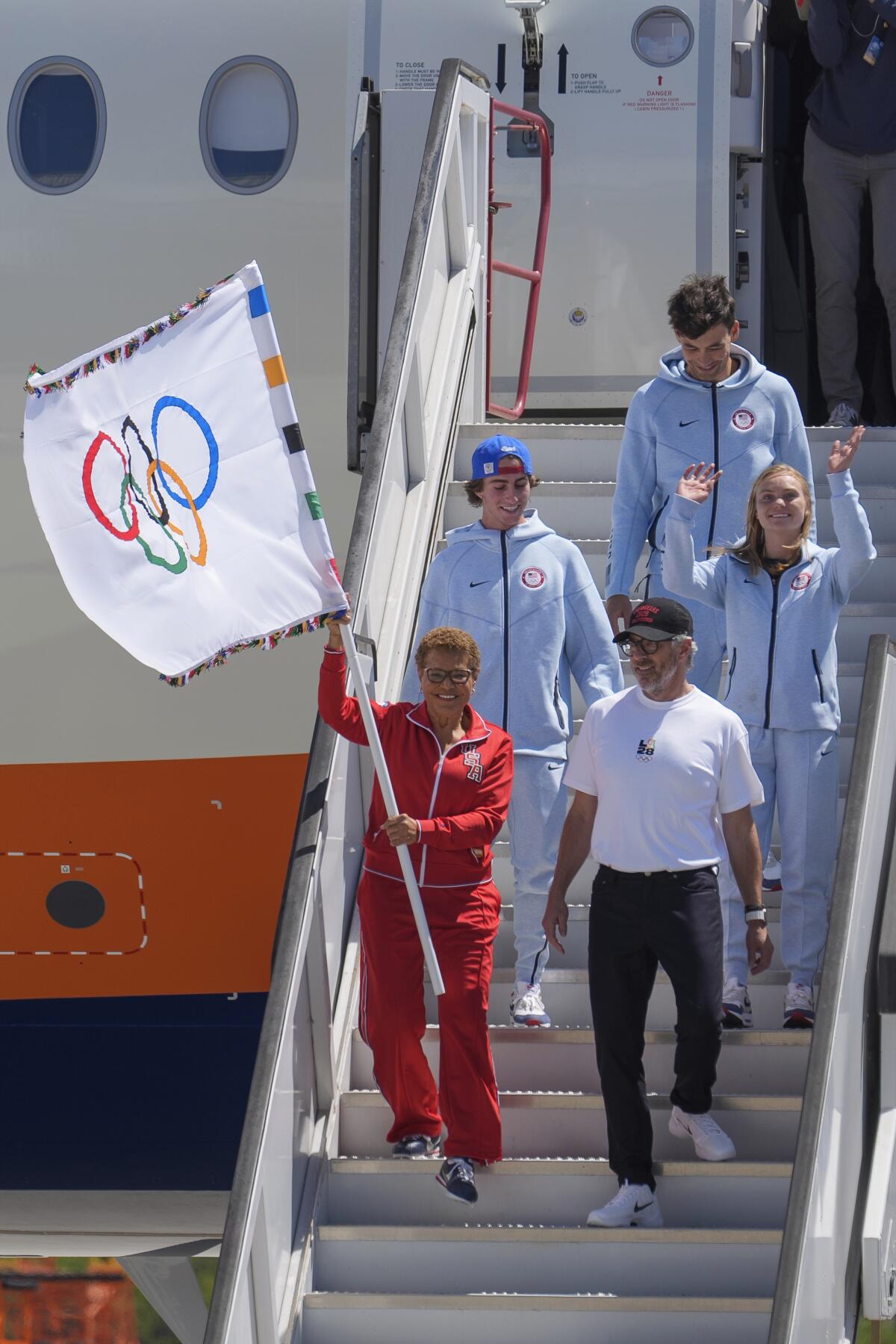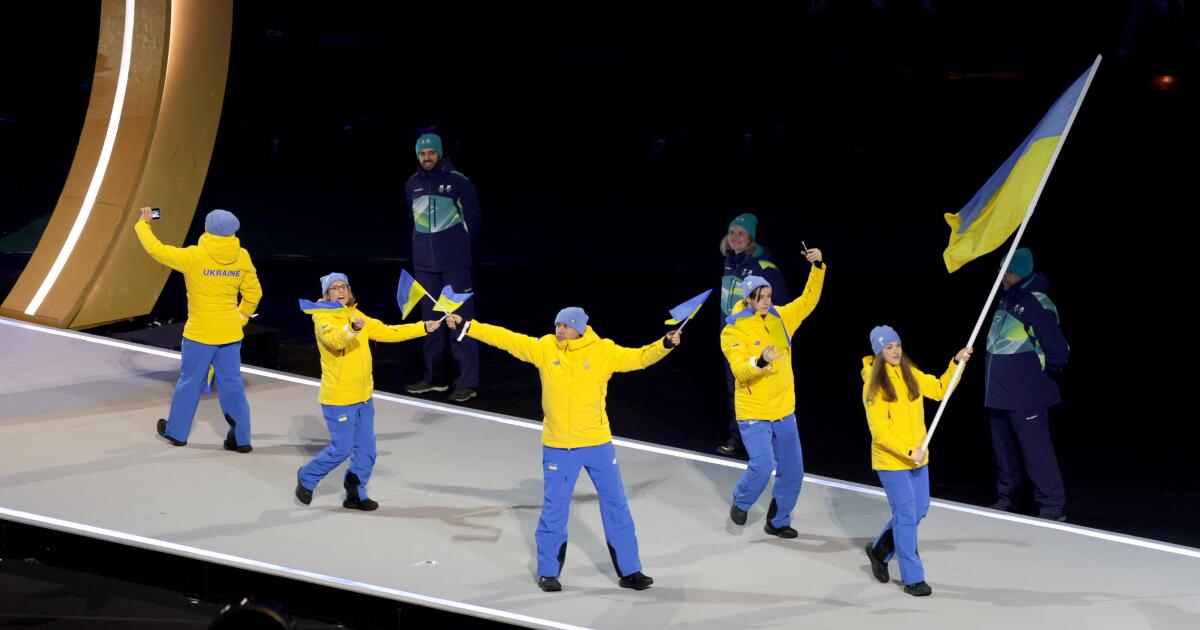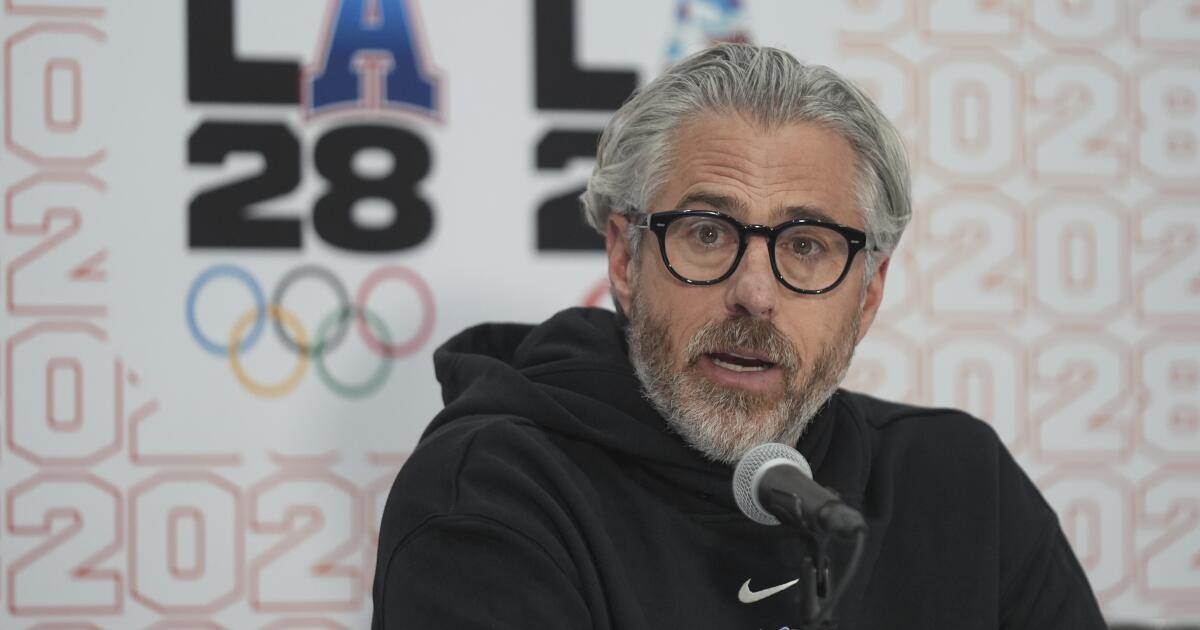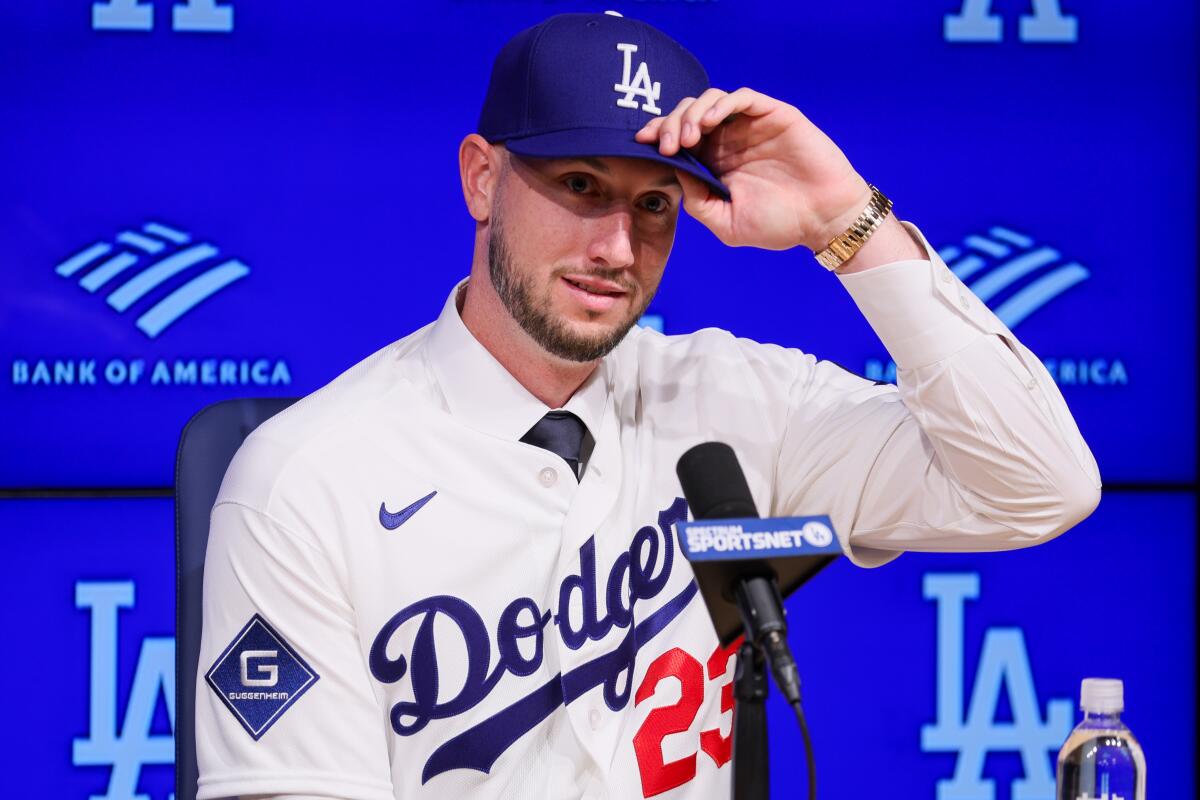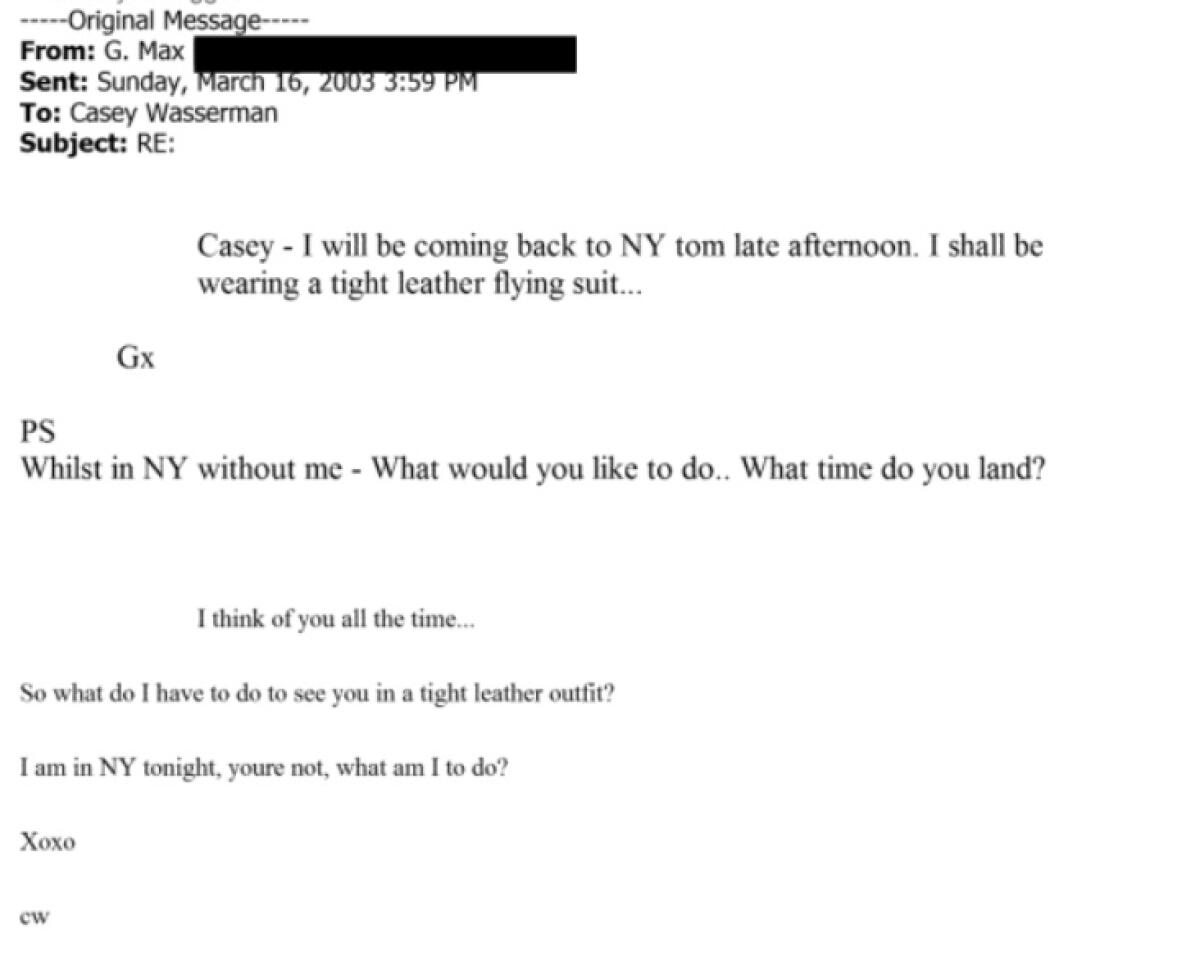L.A. Mayor Bass says LA28 head Wasserman should step down
Los Angeles Mayor Karen Bass said in an interview Monday that she does not want embattled mogul Casey Wasserman running the 2028 Summer Games.
Bass told CNN’s Dana Bass that it was “unfortunate” that the organizers of the Los Angeles Olympics are supporting Wasserman amid revelations that he exchanged flirty emails with convicted sex trafficker Ghislaine Maxwell two decades ago.
Bass initially declined to take a position on the drama surrounding Wasserman, saying two weeks ago that it was up to the board of the LA28 Olympics — the nonprofit behind the Games — to decide whether to keep him.
But Monday, Bass offered a new take on Wasserman’s fate.
“My opinion is that he should step down,” Bass said. “That’s not the opinion of the board.”
She said that “we need to look at the leadership” of LA28 and that her job is to make sure that the city is “completely prepared” for the Games.
Wasserman has previously apologized for his correspondence with Maxwell and expressed regret for having any association with both her and Jeffrey Epstein. The exchanges took place before Maxwell’s crimes became known and before she was sentenced to prison for luring teenage girls to be sexually abused by financier Epstein.
Wasserman announced last week that he would sell his sports and entertainment company because of backlash over the email exchanges.
The executive committee of the LA28 board announced Wednesday that it reviewed the mogul’s past conduct and determined that based on the facts and his “strong leadership” of the Games, he should continue to serve as chair of LA28.
The LA28 executive committee — a subset of its broader, 35-member board — said it took “allegations of misconduct seriously.”

Los Angeles Mayor Karen Bass, carrying the Olympic flag, LA28 chairman Casey Wasserman, front right, and Team USA Olympians skateboarder Tate Carew, second from left, diver Delaney Schnell, rear right, and volleyball player Micah Ma’a, top right, arrive in Los Angeles on Aug. 12, 2024.
(Damian Dovarganes / Associated Press)
It met Wednesday after hiring outside counsel O’Melveny & Myers LLP to assist reviewing Wasserman’s interactions with Epstein and Maxwell. Wasserman, it said, fully cooperated with the review.
L.A.’s Olympic leaders have yet to reveal who is on the committee. Bass’ office last week said her appointees on the executive committee include entertainment attorney Matt Johnson, real estate developer Jaime Lee and union leader Yvonne Wheeler.
At least 10 L.A.-area politicians, including a third of the 15-member Los Angeles City Council, have called on Wasserman to resign from leading the Olympics, with many arguing the exchanges are a distraction.
City Councilmember Nithya Raman, who is challenging Bass in the upcoming mayor’s race is among those calling for Wasserman to step away. Raman previously worked at a women’s rights organization formed in the aftermath of the #MeToo movement before becoming a council member.
Even before revelations about the emails, there were tensions between Wasserman and some Los Angeles politicians concerned that financial shortfalls in staging the $7-billion Summer Games will need to be covered by local taxpayers.
The relationship between the city and LA28 was further strained when the Daily Mail, a British tabloid, published allegations in 2024 that Wasserman was a “serial cheater” who’d carried on affairs with young female staff members. Wasserman, who separated from his wife, Laura, in 2021, has denied the allegations.
Former Mayor Eric Garcetti picked Wasserman, a close friend, more than a decade ago to run the Olympics.
